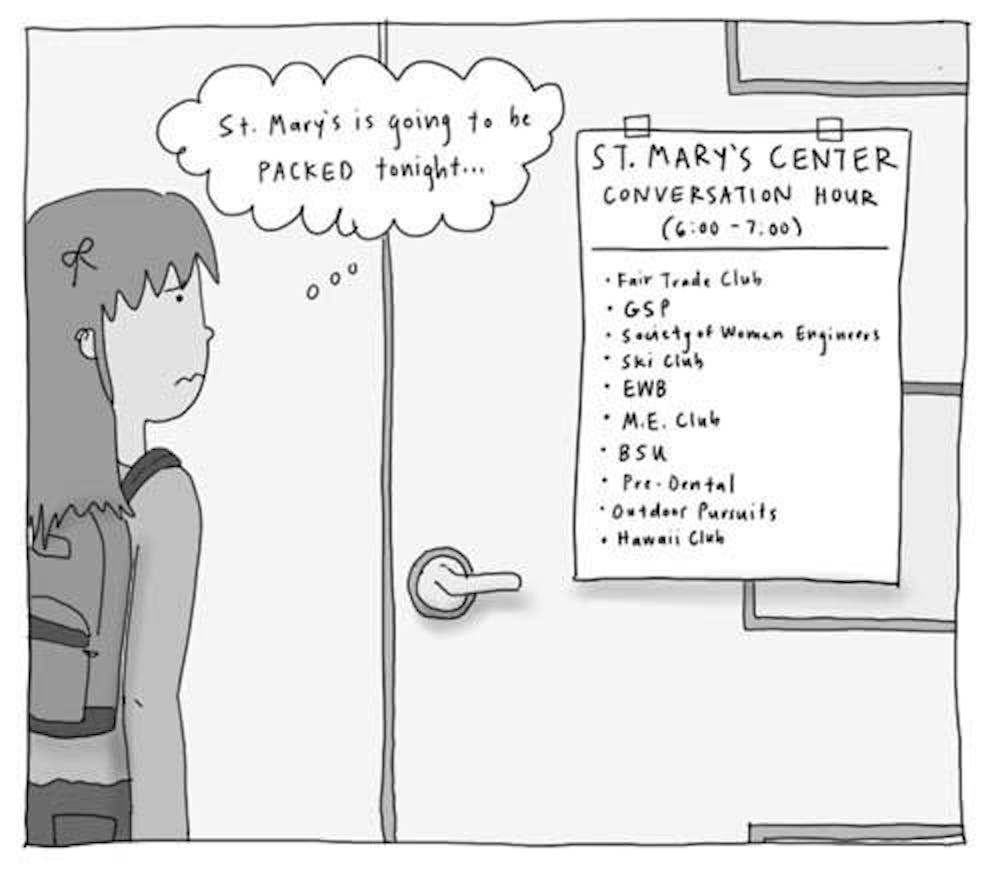(Ann Truong | The Beacon)
By
Every weekday from 8:10 in the morning to 10:00 at night, there are classes scheduled back to back.
Because many of these are core or major requirements, students have little choice as to when their breaks will be.
This scheduling causes difficulties for clubs and other groups on campus to find meeting times that work with each member's schedule. Not only that, but it also forces some students to be in class for hours on end without a break for lunch.
ASUP's Resolution 13-02, which the Senate passed Feb. 11, proposes a conversation hour once a week when no core requirements or major-specific classes are held.
This resolution is currently awaiting administrative approval.
But how much good can one hour a week do?
Instead, ASUP should propose a conversation hour every day.
A conversation hour gives students a time they know they will be free - whether that's for a much-needed lunch break, a meeting, a group project, an on-campus activity or just a moment to relax during their busy day.
But one hour a week will not make enough of a difference.
Many students are unable to participate in the clubs or activities they are interested in because of their class schedules - especially majors with very structured schedules such as education and engineering.
Lauren Mucha, president of the Mesa Redonda Spanish conversation club, says there are students who want to join the club but cannot because of their class schedules. She says that if someone is unable to participate, it is usually because of a class conflict with the meeting time.
A conversation hour every day would create a time with no class conflicts so that, barring work and personal conflicts, students would be guaranteed the ability to participate in the clubs they wanted to.
One hour a week is simply not enough time for the many clubs and groups on campus who will take advantage of this hour to schedule meetings and activities.
If this resolution passes and there is only one conversation hour per week, clubs will be scrambling to claim meeting space. Many meetings and activities will be on the same day, so students in multiple clubs will be forced to choose just one meeting to attend.
Re-shuffling the schedule will be a challenge for the Registrar, but the benefits it will give students to participate more in campus life is well worth it.
And if the Registrar is able to re-shuffle the course schedule to create a conversation hour once a week, they should be able to do so to create one once a day.
That would make a difference.
Editorial Policy The editorial reflects the majority view of The Beacon Editorial Board. The editorial does not necessarily reflect the opinions of the collective staff or the Administration of the University of Portland. Other submissions in this section are signed commentaries that reflect the opinion of the individual writer. The Student Media Committee, providing recommendation to the publisher, oversees the general operation of the newspaper. Policy set by the committee and publisher dictates that the responsibility for the newspaper's editorial and advertising content lies solely in the hands of its student employees.









